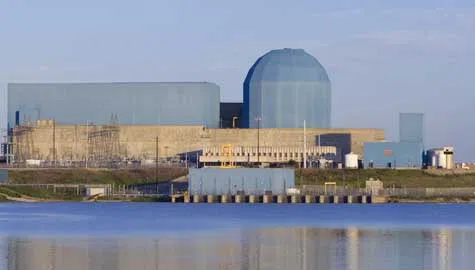Clinton Power Station is one of three plants Exelon has threatened to close. (Photo courtesy Exelon)
By Jim Anderson/Illinois Radio Network
SPRINGFIELD – Adjusting the market to benefit one source of electricity generation will have a bearing on the others.
As Exelon asks for credit for operating nuclear plants that don’t emit carbon – in order to make them profitable – any change to the market rules might upset the delicate balance on which rests the profitability of other sources, according to Doug Scott, the former chairman of the Illinois Commerce Commission.
“When we do something in a market-based attempt to try to help the nuclear industry out, what effect does that have on all of the other power generators in the state, some of whom are challenged as well?” he said.
For example, should carbon-free electricity generation be favored, that would put coal at a relative disadvantage, and it would also work against renewable fuels – solar and wind – and energy efficiency measures, the economics of which would be less favorable if nuclear got a carbon-free credit. Of course, renewables already get credit for their lack of emissions.
There are other complexities too: The nuclear industry is a good employer, but so is coal, and renewables have that potential. There are environmental impacts too – if nuclear plants close, would that electricity be replaced by coal, or by cleaner renewable sources, or by energy efficiency?
The Exelon effort on Springfield is set to begin this week.





